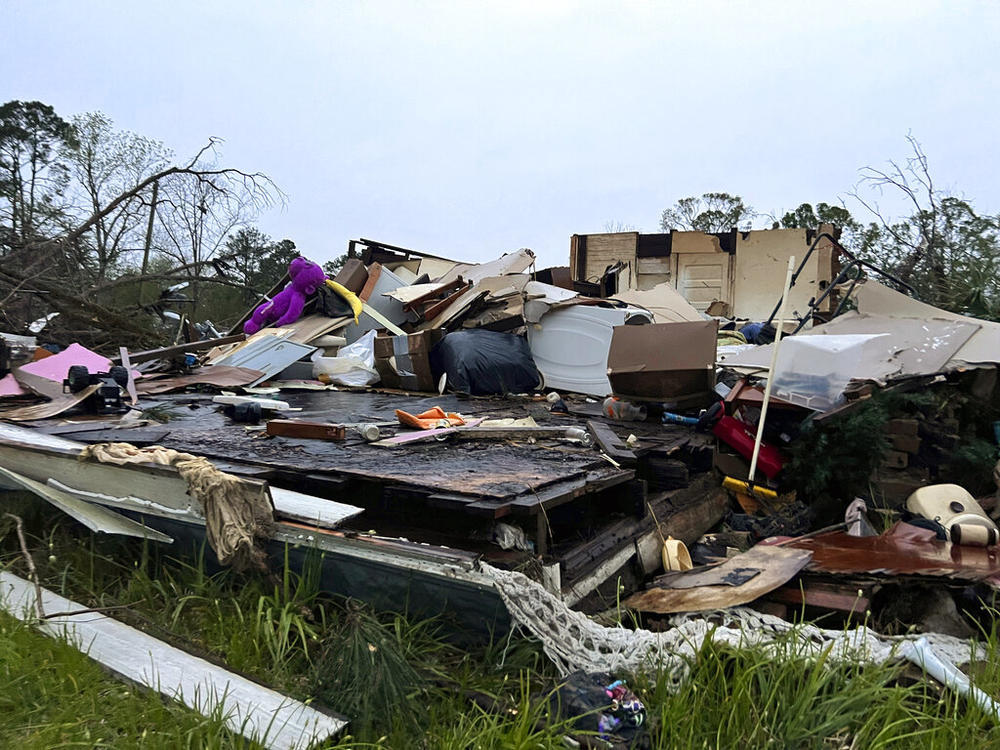
Caption
Damage is seen at a house on South Main Street in Pembroke, Ga., 30 miles from Savannah, after a storm passed through the city in April 2022 — one of several that tested the state's public health emergency preparedness.
Credit: Lewis Levine/AP

